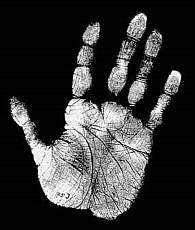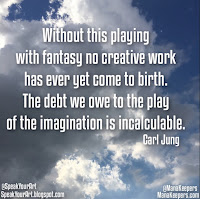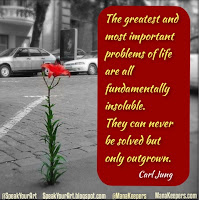This is a collection of quotes and images about health. These are not your typical quotes about diet and exercise. They are a compilation of ideas that encompass the totality of our construct. They address the body, the mind, the emotions and the spirit. Some are timeless and many are irreverent but all have a place in the balance of being.
Health is dynamic, flowing and ever changing to accommodate us from omens to moment. Our physical form is interconnected with all that is us and with all that is seen and unseen. Emotions, thoughts, beliefs are at least as powerful as diet and exercise in shaping our health. I hope you enjoy these tidbits of wisdom and may they become food for thought.
"With every pill we have prescribed for us we should also be given a creative prayer, a suggested way to correct our destructive patterns of thought."
Ernest Holmes, "Health Is Normal"
"It has often been remarked, that persons destitute of ambition and avarice are peculiarly likely to enjoy long life. They feel no regret for the past, nor anxiety about the future. Enjoying that tranquility of soul, on which the happiness of our early years so much depends, they are strangers to those torments of the mind, which usually accompany more advanced years, and by which the body is wasted and consumed. Hence a calm, contented, and cheerful disposition, may be justly considered the great source of health, in regard both of body and mind; and ought to be accounted the most important of all our possessions."
John Sinclair, The Code of Health and Longevity, 1807
"The great majority of us are required to live a life of constant duplicity. Your health is bound to be affected if, day after day, you say the opposite of what you feel, if you grovel before what you dislike, and rejoice at what brings you nothing but misfortune. Our nervous system isn't just a fiction, it's a part of our physical body, and our soul exists in space, and is inside us, like the teeth in our mouth. It can't be forever violated with impunity." Boris Pasternak
"Everyone who is born holds dual citizenship, in the kingdom of the well and in the kingdom of the sick. Although we all prefer to use only the good passport, sooner or later each of us is obliged, at least for a spell, to identify ourselves as citizens of that other place."
Susan Sontag, Illness as Metaphor, 1977
"Men that look no further than their outsides, think health an appurtenance unto life, and quarrel with their constitutions for being sick; but I that have examined the parts of man, and know upon what tender filaments that fabric hangs, do wonder that we are not always so; and considering the thousand doors that lead to death, do thank my God that we can die but once." Thomas Browne
"Despise no new accident in your body, but ask opinion of it.... There is a wisdom in this beyond the rules of physic. A man's observation, what he finds good and of what he finds hurt of, is the best physic to preserve health." Francis Bacon
Live in rooms full of light
Avoid heavy food
Be moderate in the drinking of wine
Take massage, baths, exercise, and gymnastics
Fight insomnia with gentle rocking or the sound of running water
Change surroundings and take long journeys
Strictly avoid frightening ideas
Indulge in cheerful conversation and amusements
Listen to music.
A. Cornelius Celsus
Avoid heavy food
Be moderate in the drinking of wine
Take massage, baths, exercise, and gymnastics
Fight insomnia with gentle rocking or the sound of running water
Change surroundings and take long journeys
Strictly avoid frightening ideas
Indulge in cheerful conversation and amusements
Listen to music.
A. Cornelius Celsus
"To be always considering "what we should eat, and what we should drink, and wherewithal we should be clothed," in order to avoid the approach of disease, is the most likely means of provoking its attack. A man who is continually feeling his pulse, is never likely to have a good one. If he swallow his food from the same motive as he does his physic, it will neither be enjoyed nor digested so well as if he ate in obedience to the dictates of an uncalculating appetite. The hypochondriac who is in the habit of weighing his meals, will generally find that they lay heavy on his stomach. If he take a walk or ride, with no other view than to pick up health, he will seldom meet it on the road."
John Reid, M.D., "Occupation," c.1818
"Every symptom has a story to tell about your life. A fascinating story, that can reveal the complex links between your body, mind, emotions and spirit."
Kristina Turner, The Self-Healing Cookbook, 2002, originally published 1987
"It is very strange, this domination of our intellect by our digestive organs. We cannot work, we cannot think, unless our stomach wills so. It dictates to us our emotions, our passions.... We are but the veriest, sorriest slaves of our stomach. Reach not after morality and righteousness, my friends; watch vigilantly your stomach, and diet it with care and judgment. Then virtue and contentment will come and reign within your heart, unsought by any effort of your own; and you will be a good citizen, a loving husband, and a tender father—a noble, pious man."
Jerome K. Jerome, Three Men in a Boat (To Say Nothing of the Dog), 1889
"In the pause between dying to self, and awakening to Self, there is a "limbic" state, a borderland neither here nor there. The body is laid in the tomb, and the resurrection only an inconceivable promise. Letting go of our bodies is no small thing for creatures so deeply identified with them as ourselves. Yet if I have learned anything over these years of study, it is this: I am not my body. Our bodies are but passing iterations, reflections of an inconceivably bright and steady truth, and the parts we play, we also drop as the curtain falls. Let the curtain fall, along with tears, and cast off the role. You will live well beyond the leaving."
"Every day we touch what is wrong, and, as a result, we are becoming less and less healthy. That is why we have to learn to practice touching what is not wrong—inside us and around us. When we get in touch with our eyes, our heart, our liver, our breathing, and our non-toothache and really enjoy them, we see that the conditions for peace and happiness are already present." Thich Nhat Hanh
"My definition of fitness is to be able to carry out all of the activities in life that you desire, plus have a physical reserve at the end of the day to do something besides lie down and flip the remote. If you can do all that, if you're functional, then you're fit. It doesn't matter if you have great abs or can bench-press your body weight. Those things have nothing to do with real life." James Glinn, physical therapist, in an interview with Joe Kita for his 1999 book Wisdom of Our Fathers
"Everyone should be his own physician. We ought to assist and not force nature. Eat with moderation what agrees with your constitution. Nothing is good for the body but what we can digest. What medicine can produce digestion? Exercise. What will recruit strength? Sleep. What will alleviate incurable ills? Patience." Voltaire
"The deviation of man from the state in which he was originally placed by nature seems to have proved to him a prolific source of disease." Edward Jenner
"The cause is within us. The cure is within us. When we know this our concept of disease is no longer that of something fixed upon the body cells which must be purged, cut or burned away. It is not something coming in from the outside which we cannot prevent. Rather it is a change from within, and we must find the reason why the body changes its perfect pattern to vibrate to discord rather than to harmony." Rebecca Beard, 1951
"Illnesses which occur because of physical causes should be treated by doctors with medical remedies; those which are due to spiritual causes disappear through spiritual means. Thus an illness caused by affliction, fear, nervous impressions, will be healed more effectively by spiritual rather than physical treatment. Hence, both kinds of treatment should be followed; they are not contradictory." 'Abdu'l-Bahá
"The root of all health is in the brain. The trunk of it is in emotion. The branches and leaves are the body. The flower of health blooms when all parts work together." Kurdish Saying
"From the bitterness of disease man learns the sweetness of health." Catalan Proverb
"Health is a large word. It embraces not the body only, but the mind and spirit as well;... and not today's pain or pleasure alone, but the whole being and outlook of a man." James H. West
"In later times wise men were never wanting who endeavoured to restore among their contemporaries primitive habits and ways of living, to bring mankind back to the observance of those simple and rational rules of life to which the ancients owed their health and strength." Sebastian Kneipp, 1889, translated from German, introduction to Thus Shalt Thou Live [Kneipp (1821–1897) was a pioneer in naturopathic medicine and was known for his strong beliefs in "water cures" a.k.a. hydrotherapy. —tεᖇᖇ¡·g]
"What some call health, if purchased by perpetual anxiety about diet, isn't much better than tedious disease". George Dennison Prentice, Prenticeana, 1860
"In minds crammed with thoughts, organs clogged with toxins, and bodies stiffened with neglect, there is just no space for anything else." Alison Rose Levy, "An Ancient Cure for Modern Life," Yoga Journal, Jan/Feb 2002
Wishing you health, balance and harmony today and everyday. Thank you for visiting.
For more information about In the Flow Studios ~ Body
goto the website at http://intheflowstudios.com
or to follow us on fb goto In the Flow Studios ~ Body
In the Flow Studios ~ Body Pinterest
Aurora's "Speak Your Art Blog Hub" combines posts from seven of her other blogs: In the Flow Studios Arts, In the Flow Studios Body, I Love Shelter Dogs, Mana Keepers, PaaMano Eskrima & Performing Arts, Self-Actualization thru Women's Empowerment and Speak Your Art Poetry. It brings her organizations together and offers her readers an easier way to follow new posts in one convenient location.
POI













































